School Overview & Development History
The MUC School of Life and Environmental Sciences was established in 2002. The predecessor of it was the Department of Biology and Chemistry, which was established in 1986. It recruited junior college students in 1994 to enroll as undergraduate students. In 2001, it started to enroll graduate students. In 2009, it began accepting doctoral students and postdocs. At present, the school has formed a three-level talent training system for undergraduates, masters and doctoral students.
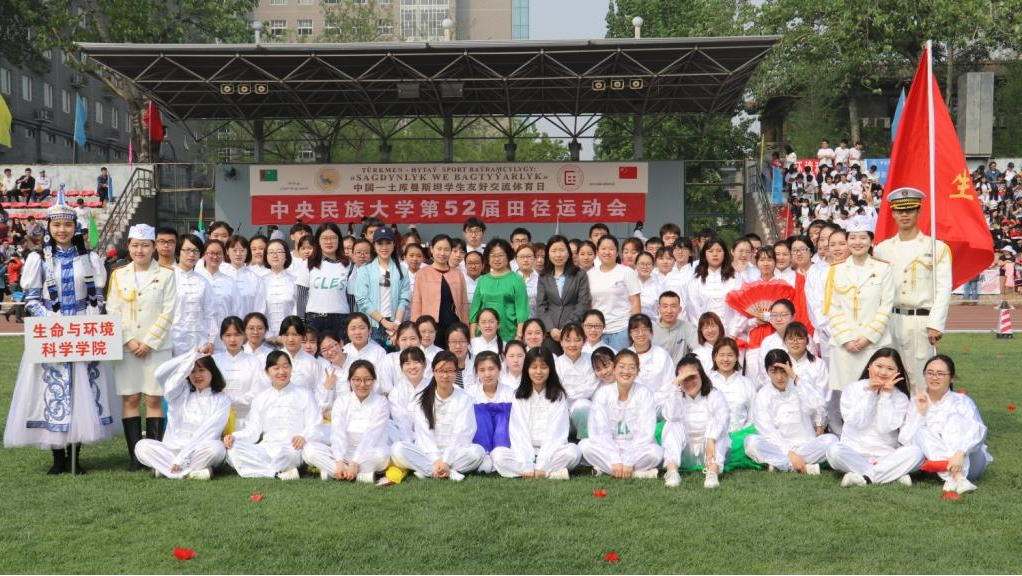
In terms of conditional platform construction, the school has three experimental centers, among which the chemical experimentation center is a national experimental demonstration center construction unit, as well as a Beijing experimental teaching demonstration center. Furthermore, the biological experiment center is the Beijing Experimental Teaching Demonstration Center; the provincial and ministerial level engineering technology center - Beijing Food Environment and Health Engineering Technology Research Center has a total area of more than 4,000 square meters, and the total value of instruments and equipment amounts to more than 30 million yuan.
After nearly 30 years of construction and development, the MUC School of Life and Environmental Sciences has made great progress in discipline construction, teaching staff, teaching reform, scientific research, and personnel training. It has become a distinctive school-running feature, serving ethnic minority areas and serving ethnic minorities. At the same time, the talents cultivated by the school have played an important role in their respective positions.
Majors & Programs
The MUC School of Life and Environmental Sciences has 7 undergraduate majors, including biological sciences, biotechnology, ecology, environmental science, environmental engineering, chemistry, and pharmaceutical engineering. Among them, the ecology major is a national-level specialty.
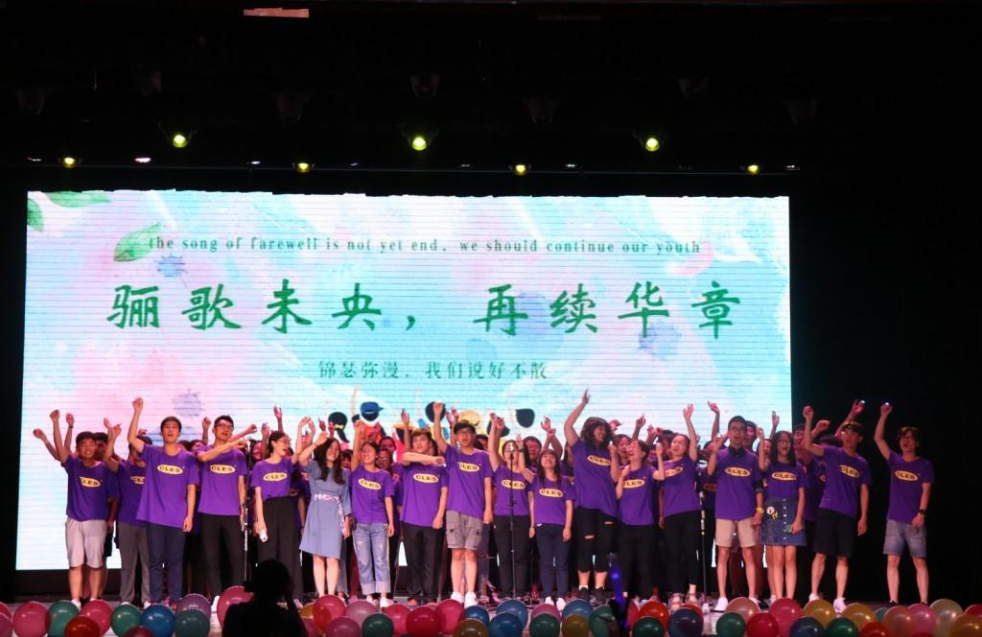
The MUC School of Life and Environmental Sciences has a doctoral degree (ethnic ecology). It has four master's degree programs in biology, ecology, environmental science, and engineering with specializations in botany, zoology, biochemistry, molecular biology as well as biophysics. There are 9 master's degree programs in plant ecology, landscape ecology, environmental science, environmental engineering as well as ethnic ecology.
Undergraduate Programs (4-Year Programs)
- Biological Sciences
- Biotechnology
- Ecology
- Environmental Science
- Environmental Engineering
- Chemistry
- Pharmaceutical Engineering
Academic Master's Programs (3-Year Programs)
- Plant Ecology
- Landscape Ecology
- Environmental Science
- Environmental Engineering
- Ethno-Ecology
Doctoral Programs (4-6 Year Programs)
- Ethnic Ecology
School Focus, Beliefs & Development Objectives
The MUC School of Life and Environmental Sciences has several national key disciplines under the National People's Committee which are key disciplines within MUC's "211 Project". The school is a construction unit of the "985 Project" as well as a science and technology innovation platform administered by the Ministry of Education and the National Foreign Experts Bureau Higher Education Discipline. The key research areas of the “Innovation and Enlightenment Program (111 Project) National Biology, Biological Resources Protection, Utilization Technology Innovation and Enlightenment Base” include: biodiversity protection in ethnic areas, traditional knowledge and ecological protection of ethnic minorities, ethnic area biology, resource utilization and conservation, plant stress molecular biology, ethnic area ecological planning and ecological restoration, environmental monitoring in ethnic areas, environmental assessment and sustainable development in ethnic areas, and natural resource management in ethnic areas.
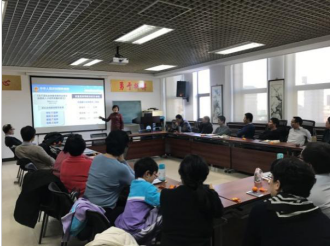
Our Talent
As of May 2018, the MUC School of Life and Environmental Sciences has 81 faculty members, including 54 full-time teachers, 11 technicians in the experimental center, 8 administrative staff, 4 platform staff and 4 project contract staff. Among the 54 full-time teachers, there are 22 teachers with senior titles, 17 deputy senior teachers, 50 with doctoral degrees, accounting for 93% of the total number of full-time teachers, who are respectively engaged in teaching and scientific research in the fields of biological science, biotechnology, ecology, environmental science, environmental engineering as well as chemistry and more. Five discipline leaders are all entitled to the special government allowance of the State Council: Professor Xue Dayuan is engaged in biodiversity and traditional knowledge protection research; Professor Long Chunlin is engaged in ethnobotany research; Professor Sang Weiguo is engaged in ecosystem ecology research; Professor Feng Jinchao is engaged in plant biology research; Professor Xia Jianxin is engaged in sustainable ecology and watershed water environment management research. Professor Xia Jianxin is regarded as a national-level distinguished engineering talent; Professor Xia Jianxin, Professor Jin Jun, Professor Huang Yaojiang, Associate Professor Liu Yue, etc. are on the "New Century Talents" list of the Ministry of Education. Professor Long Chunlin is the leader of the National People's Committee. Professor Jin Jun and Associate Professor Liu Yue are young talents of the National People's Committee. Professor Zhou Yijun is a famous university teacher in Beijing. Professor Cheng Yong and Associate Professor Wang Wenshu are new technology stars in Beijing. Xue Kun, Associate Professor and Dr. Wang Zhonghua are young talents in Beijing. Professor Feng Jinchao, Professor Zhou Yijun, Professor Xia Jianxin, Professor Liu Ying, Professor Jiao Yuguo and Professor Wang Junli have won the Baosteel Excellent Teacher Award successively. Professor Zhou Yijun has been conferred the Beijing Teachers' Morality Model and the Capital Labor Medal. Among the full-time teachers, there are 5 Second-Tier Professors, 5 Third-Tier Professors, 12 Doctoral Supervisors and 39 Postgraduate Supervisors.
Of the 11 full-time technical personnel in the experimental center, 7 have Deputy Senior titles and 10 have doctoral degrees. Among the 8 full-time administrative personnel, 2 have Deputy Senior titles, 4 have doctoral degrees and 4 have master's degrees. 14 of our faculty members were included into list of high-level talents recognized by the University in 2017. Some of the outstanding talents include Professor Cheng Yong, Chen Tan, Feng Jinchao, Hu Jicheng, Jin Jun, Liu Ying, long Chunlin, Sang Weiguo, Wang Junli, Wang Xiaodong, Xia Jianxin and Xue Dayuan as well as two outstanding young talents (Li Hua and Wang Zhonghua). In 2017, Lin Weili, Xiao Chunwang and Tang Yanwu were introduced into the school as excellent talents. In recent years, teaching and scientific research level of the school teachers has been significantly enhanced in order to improve the methods and scientific research level of instructors by means of in-service study for doctors, study abroad and training young teachers in ways that integrate traditional and new methods. All of this has played an important role in training talents in ethnic minority nationality areas as well as investigating research problems in ethnic minority nationality areas.
Full-Time Staff: 54
Professors: 22
Staff with Doctoral Degree:50
Examples of Internationally Active Scholars
Xia Jianxin(夏建新), Han Ethnicity
Doctoral Advisor
Environmental EngineeringMajor
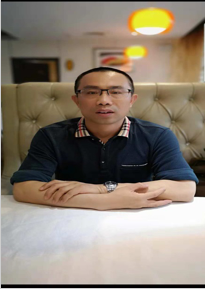
About
In 2002, Xia came to work at MUC transitioning from the Postdoctoral Mobile Station of Environmental Science and Engineering of Peking University. In 2008, he was recognized by the Ministry of Education and put on the list for the "New Century Excellent Talent Support Program". In 2012, he received a special government allowance from the State Council. He is a visiting researcher at the State Key Laboratory of Deep Sea Mineral Resources Development, member of the Slurry Transportation Committee of the Chinese Society of Metals, and is currently surving on the editorial board of the Journal of Applied Basic and Engineering Sciences.
ResearchInterests & Activity
Environmental evolution process simulation, prediction and evaluation studies based on environmental hydraulics, environmental geosciences, and computing technologies, solid material pipeline hydraulic transportation and tailings filling technology, "3S" technology as well as environmental planning, environmental policy analysis and research. He has published more than 150 research papers, published 4 monographs and textbooks, obtained 10 patents and software copyrights, and completed more than 50 scientific research projects. He has won the Baosteel Outstanding Teacher Award, the National Science and Technology Progress Second Prize, and the Provincial and Ministry-level Scientific Research Award 10 times.
KeyProjects
1) Basic science and key technology of deep-sea ore resources solid-liquid two-phase fluid lifting system, the National Natural Science Foundation of China Key Project (Approval No. 51339008).
2) Experimental study on the hydraulic transportation mechanism of solid materials under complex conditions, National Natural Science Foundation of China (approval number: 51179213), host
3) Research on the transport characteristics of coarse particles in complex spatial morphology pipelines, National Natural Science Foundation of China (approval number: 50879096), host
RepresentativePublications
1) Xia Jianxin, Li Suwen, Ren Huatang, etc., Surface Water Environmental Information Management and Accident Emergency Decision System, Beijing: Science Press, 2010
2) Xia Jianxin, Yang Fan, Wang Tiezhi, etc., Research on the Benefit Mechanism of Natural Resource Development Communities in Ethnic Minority Areas of China, Beijing: MUC Press, 2009
3)Yanming Yu, Hua Li, LijinPiao, Jianxin Xia*,et al. Synthesis of Gd-N codoped porous TiO2 photocatalyst and its enhanced photocatalytic activities[J]. Chemical Research in Chinese Universities, 2016:1-7.
Li Xianchan(李鲜婵), Han Ethnicity
Professor
ChemistryMajor
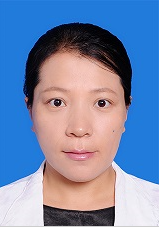
She received his bachelor's degree from Peking University in 2004, and her doctor's degree from the Institute of Chemistry at the Chinese Academy of Sciences in 2009. She then remained as an assistant researcher until April 2013. From April 2013 to April 2015, she was engaged in postdoctoral research at Chalms University of Technology, Sweden (working with Professor Andrew g. Ewing). From April 2015 to June 2018, she worked as a researcher at the University of Gothenburg, Sweden.
She served as peer reviewer well-known international journals related to chemistry and has published nearly 40 papers included in the SCI. She has 3 invention patents (including 1 international PCT patent), and 1 chapter published in an English monograph.
Contact Email: xianchan.li @ muc.edu.cn
Personal Homepage:https://www.researchgate.net/profile/Xianchan_Li/research
Courses
Surface and Colloid Chemistry
Analytical chemistry of neurochemical signal transduction
Analytical Chemistry of Biological Nanoparticles
Molecular Mechanism and Drug Intervention Mechanism on Major Brain Diseases
Research Projects
1. General Program of NSFC (2020-2023)
2. National Outstanding Project (2019 - Presebt)
3. National Natural Science Youth Fund Project (2011-2013)
4. Key Projects of NSFC (3 million): main participants (2012-2016)
5. Major International Cooperative Research Projects of NSFC (2011-2013)
Representative Publications
Xianchan Li, Ping Yu, Lifen Yang, Fuyi Wang, Lanqun Mao*.An Electrochemical Method for Investigation of Conformational Flexibility of Active Sites of Trametes versicolor Laccase Based on Sensitive Determination of Copper Ion with Cysteine-Modified Electrodes. Anal.Chem . 2012, 84, 9416-9421. (SCI I)
Xianchan Li, Lingzhi Zhao, Zhenling Chen, Yuqing Lin, Ping Yu, Lanqun Mao*. Continuous Electrochemical Monitoring of Extracellular Lactate Production from Neonatal Rat Cardiomyocytes following Myocardial Hypoxia. Anal.Chem . 2012, 84, 5285-5291. (SCI I)
Xianchan Li, Wei Zheng, Limin Zhang, Ping Yu, Yuqing Lin, Lei Su, Lanqun Mao*. Effective Electrochemical Method for Investigation of Hemoglobin Unfolding Based on the Redox Property of Heme Groups at Glassy Carbon Electrodes. Anal.Chem . 2009, 81, 8557-8563. (SCI I)
Long Chunlin(龙春林),Han Ethnicity
Second Level Professor
Ethnic Ecology Major
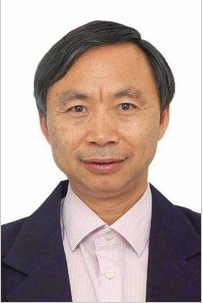
He recieved his doctoral degree from National Gifu University of Japan. Currently, he serves as a doctoral supervisor and discipline leader of MUC. He was elected as the Director of the Chinese Society of Botany, the Director of the Ethnobotany Committee of the Chinese Wildlife Conservation Association, the Vice President of the Ethnobotany Branch of the Chinese Society of Botany, the Vice President of the Ecology and Natural Protection Branch of the Chinese Environmental Society, the Vice Chairman of the National Ecology Committee of the Chinese Ecological Society, the Executive Director of the Beijing Ecological Society, and the Director of the International Society of Ethnobiology. He was once the Chief Engineer of Southwest China Wildlife Germplasm Resources Bank of national major scientific engineering and assistant to the Director of Yunnan Provincial Department of Agriculture. He was invited to be Deputy Editor in Chief of Journal of Ethnology and Ethnomedicine, Editorial Board member of SCI journals such as those related to genetic resources and crop evolution and archives of pharmaceutical research, and editorial board member of five domestic core journals such as biodiversity.
He has won 20 provincial and ministerial awards and honors, including 1 first prize of Natural Science in Yunnan Province (ranking first), 1 first prize of Scientific and Technological Progress in Yunnan Province (ranking second), 2 second prizes of Natural Science in Yunnan Province (ranking second and fourth respectively), and won the Society of Ethobotanists Hashberger Prize in 2005 Medal won the UNESCO-MAB Young Scientist Award in 1996. He enjoys a special government allowance from the State Council and was selected as the leader of Innovation Team of the National People's Committee, the Leader of the National People's Committee, the Technological Innovation Talent of Yunnan Province, the High-level Migrant Talents of Guizhou Province, and the Society of Ethobotanists (FES).
373 papers were published, including 169 papers (including 11 papers in the first region), 3 papers in SSCI, and 19 Monographs (volumes). 26 new plant species were found and published. 17 patents have been obtained, 4 of which have been transferred. He has made eight keynote reports as a special reporter of the conference at large international and national academic conferences. He has directed more than 100 graduate students to graduate and obtain degrees, including 22 doctors, including 1 American student and 1 Korean student. He has guided students to obtain a large number of honors and awards for which 2 won the Excellent Doctoral Thesis Award of MUC, 5 won the National Scholarship for Doctoral Students, 4 won the National Scholarship for Master's Degree, 2 won the Excellent Student Award of Baosteel, 3 won the title of Excellent Graduate of Beijing, 1 won the Best International ConferenceThesis Award, 1 team won the bronze award of "Youth Creation" during the National Undergraduate Entrepreneurship Competition and more.
Email Address:: long.chunlin @ muc.edu.cn ; long@mail.kib.ac.cn
Public Wechat: 民族生态学
Lecture Courses
Undergraduate
Master Courses
Doctoral Courses
Main Research Contents
Engaged in basic and applied research in ethnobotany, ethnopharmacology and phytochemistry, biodiversity, plant germplasm resources, plant resources, ethnoecology and plant systematics etc.
Key Areas Include:
① Ethnobotany survey and cataloguing: to collect the important traditional botany knowledge of our country, to conduct standardized survey, cataloguing and digitization.
② Evaluation of traditional botany knowledge: evaluate the important traditional botany knowledge and traditional genetic resources, and explore the impact of human factors on biodiversity.
③ Research on ethnic medicine germplasm resources and its material basis of efficacy, evaluation of the important ethnic medicine germplasm resources and explore the mechanism of different environmental factors and different management methods affecting the formation of bioactive substances.
Recent Research Projects
1. In 2019, the biodiversity investigation and assessment project of the Ministry of ecological environment: investigation and assessment of traditional knowledge related to biodiversity in Gaoligong Mountain, Biluo snow mountain and Yunling mountain area. Project No.: 2019hj2096001006. Funds: 900000 yuan. Project host.
2. In 2018, the International (regional) cooperation project of National Natural Science Foundation of China: Research on the original habitat protection and seed system diversification of ethnic farm varieties in southwest mountainous areas. Project No.: 31761143001. Funding: 2 million yuan. Project host.
3. In 2012, the international cooperation project of NSFC: diversity and management of edible plants in the traditional agricultural ecosystem of Northwest Yunnan and Tibet. Project No.: 31161140345. Funding: 1.7 million yuan. Project host.

Official Website: http://cles.muc.edu.cn/shxyyw/